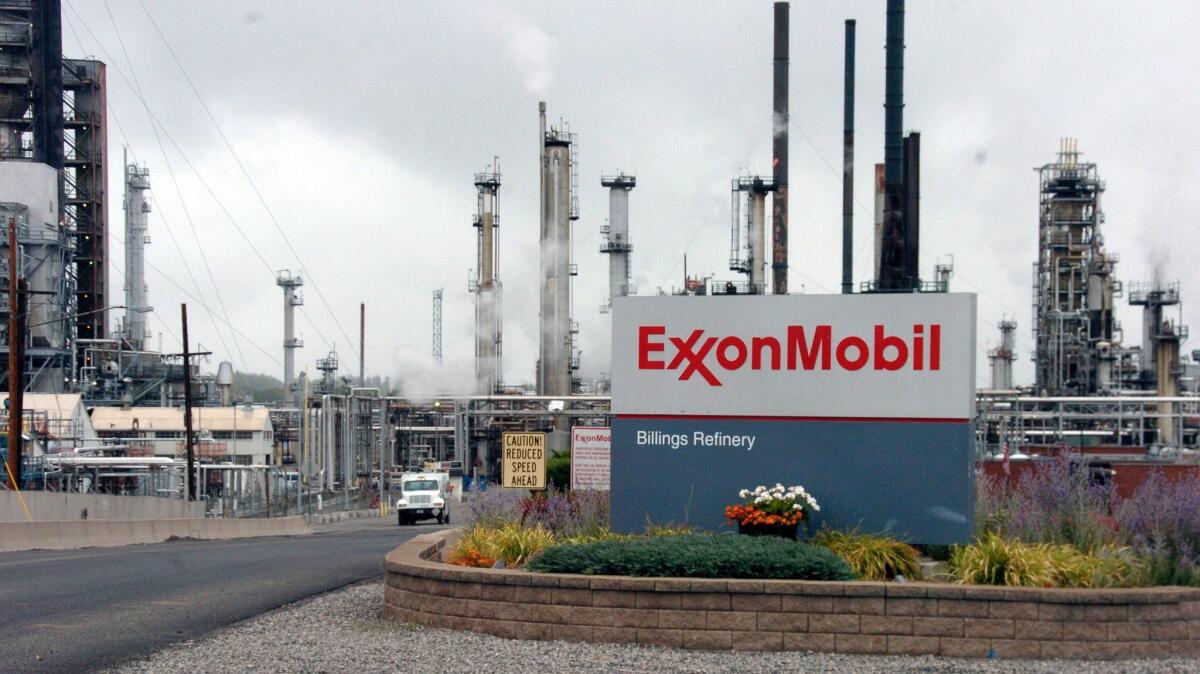Op-Ed: Yes, ExxonMobil misled the public

In late August, we published the first academic analysis of ExxonMobil’s 40-year history of communications on climate change. We published our findings in an open-access, peer-reviewed journal and made our method and evidence transparent and auditable by publishing 121 pages of supplementary materials. The result: a systematic discrepancy between what ExxonMobil scientists communicated in their scientific articles and internal reports, and what the company told the public in “advertorials” — advertisements in the New York Times masquerading as editorials. In other words, our study showed that ExxonMobil misled the public about climate science and its implications for decades.
Reviewing 187 ExxonMobil documents, we found that 83% of peer-reviewed papers authored by ExxonMobil scientists and 80% of the company’s internal communications acknowledged that climate change was real and human-caused. In contrast, only 12% of ExxonMobil’s advertorials directed at the public did so, with 81% instead expressing doubt.
How did the world’s largest publicly traded oil and gas company respond? With a straw man, a falsehood, cherry picking and character assassination.
The straw man: ExxonMobil claims that we accused them of hiding or suppressing climate science research, but to quote verbatim from our study, “We stress that the question is not whether ExxonMobil ‘suppressed climate change research,’ but rather how they communicated about it.” What our analysis does say — and show — is that ExxonMobil misled the public. On this point the company remains silent.
We published science, ExxonMobil offered spin.
The falsehood: ExxonMobil says we “have admitted” that our previous “allegations that the company hid its climate science research were wrong.” That’s not true. One journalist asked where he could find the link to the allegations; the answer is he couldn’t because we never made them. ExxonMobil has put words in our mouths and then claimed we retracted them.
Cherry picking: ExxonMobil argues that a handful of sentences within two advertorials undercut our analysis of 187 documents. But those two advertorials were included in our study. This is the kind of cherry picking of which ExxonMobil has repeatedly accused others.
Character assassination: ExxonMobil says we are in it for the money. The fact is, Naomi Oreskes did this work as a Harvard professor, with no additional payment from any source. She has never been on the payroll of any NGO or activist organization. Geoffrey Supran did two months of this work on a postdoctoral salary paid by the Rockefeller Family Fund and 11 more months on his own dime, in parallel with other, funded research projects. And who do you think gets paid more, an oil industry executive or a postdoc?
We did begin our research with views on ExxonMobil and its climate communications, just as most solar cell engineers have views on renewable energy and most medical researchers have views on public health. Objectivity doesn’t mean having no opinions. It means using objective methods and being willing to revise your views in light of evidence. The point of our new study was to read the documents that ExxonMobil claimed would exonerate them.
In sum, ExxonMobil is now misleading the public about its history of misleading the public. This is just the latest round in a long and troubling record of doubt-mongering and misdirection by the fossil fuel industry and libertarian think tanks in response to the scientific evidence of climate change.
It’s become a familiar pattern. We published science, ExxonMobil offered spin.
Separating the two is peer review. The idea is simple: Every scientific claim — unlike every company press release — is vetted by independent analysis. At minimum, peer reviewers look for mistakes in data gathering, analysis and interpretation. Usually they go further, addressing the quality and quantity of data, the reasoning linking the evidence to its interpretation, the mathematics or computer simulations used to analyze and interpret the data, and even the prior reputation of the claimant. If the person is thought to do sloppy work, has previously been involved in spurious claims or has not disclosed potential conflicts of interest, he or she can expect to attract tougher scrutiny. Scientific authors are required to take reviewers’ criticisms seriously, and to fix any mistakes that have been found. (We did this with our paper.)
The reviewers must be experts and they must be independent. They can be as tough as they need to be, because they are anonymous. Editors spend considerable time finding reviewers who meet these criteria.
People have gone to the moon, cured diseases, invented new materials, spliced the gene and split the atom — all on the basis of peer-reviewed science. It’s how you knew when and where to watch the solar eclipse.
ExxonMobil has a track record of disparaging peer-reviewed climate science. Now they are disparaging peer-reviewed social science too. We think that makes it pretty clear who can be trusted — and who can’t — when it comes to facts about the past and decisions we need to make about our future.
Naomi Oreskes is professor of the history of science at Harvard and co-author of “Merchants of Doubt: How a Handful of Scientists Obscured the Truth on Issues from Tobacco Smoke to Global Warming.” Geoffrey Supran is a postdoctoral fellow in the department of the history of science at Harvard and in the Institute for Data, Systems, and Society at MIT.
Follow the Opinion section on Twitter @latimesopinion or Facebook
More to Read
A cure for the common opinion
Get thought-provoking perspectives with our weekly newsletter.
You may occasionally receive promotional content from the Los Angeles Times.










